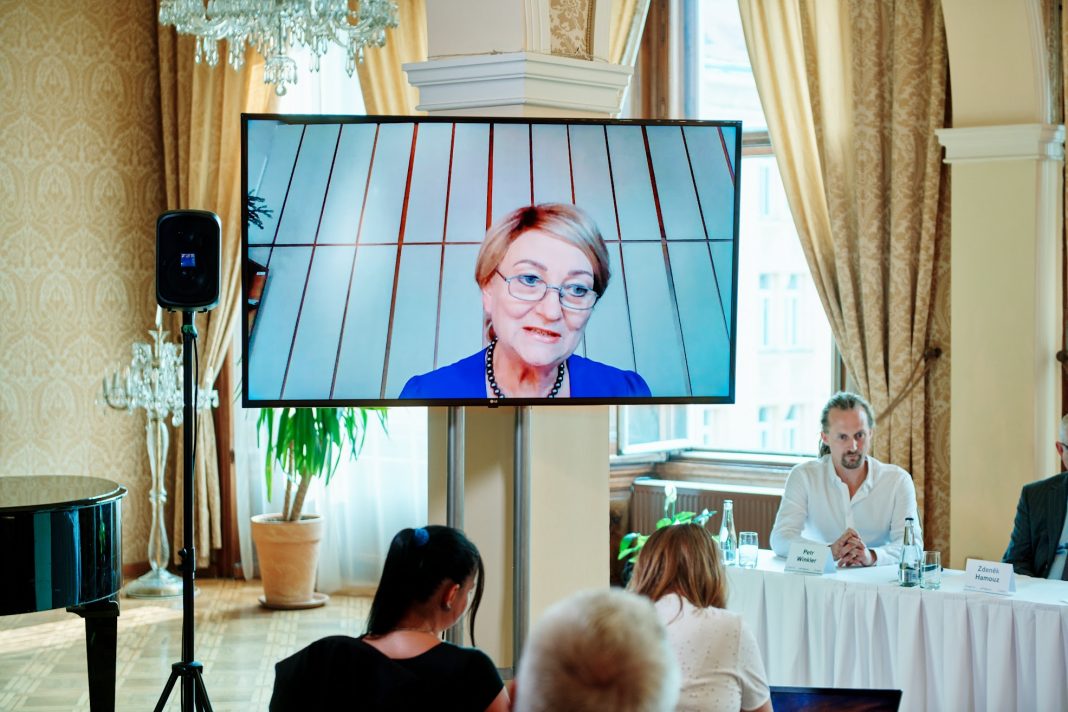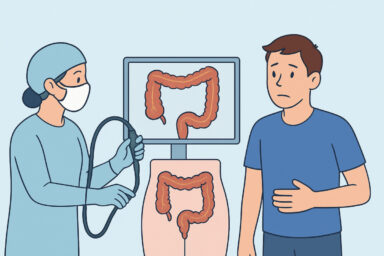As a rule, results of preventive measures are seen only after several years. This is also one of the main problems why a number of politicians do not focus on putting them through – their goal is to collect quick political points, not long-term benefits that they cannot yet boast of during the next election. In addition, as a part of prevention, we often have to tell people unpleasant things, which many politicians are loathe to do. Those aware of the importance of prevention should thus do everything possible to put such measures through and support them at every chance, emphasises Anna Záborská, the Vice-Chair of the Health Committee of the Slovak National Committee, at the international panel of the Zdravotnický deník Permanent Conference on Czech Healthcare, held on 22 July in Prague.
“We have been facing a rapid increase of healthcare costs in the long-term, and we all know what that is like during the Covid-19 era. Our systems are under great pressure to ensure continuously higher quality healthcare for the ageing population. The impacts of national budgets are well-known – we invest more and more into healthcare, but the effects are only very slowly observed; it’s as if we were holding a cat by its tail. On the other hand, the discussion on prevention has been around for decades, and we can see the results of preventive measures in several countries. They are not always positive but sometimes there is significant improvement, and they also have positive consequences in terms of treatment requirements. Of course, the average lifespan during which one has no health problems is extended by such measures, which in turn affects costs for the long-term care of senior citizens. However, ageing and the need for assistance is not reduced, on the contrary. Yet, this is something that we want, and it is not something that we need to perceive negatively, even though it has an impact on our budgets,” Anna Záborská said.
This is the reason prevention should become one of the pillars of healthcare policies. Of course, the fundamental question remains of how to make prevention a priority and mobilise political and public support in its implementation.
“It is easier to sell one saved life than one million terminal illnesses that were avoided thanks to prevention. I believe this to be a political problem, especially when the pressure for quick, short-term solutions and the collecting of fast political points have priority. This is the task for us politicians. I confess that the only answer I have is that those of us who emphasise the common good in politics have to continue in their efforts, adopt the topic of prevention, and talk about and put it through at every chance,” said Záborská. She added that prevention is the correct path to one’s own health, as well as to the health of public finances in healthcare.

Záborská found the situation in France in the 1980s, when up to ten thousand people died in car accidents, to be a positive example. Strict measures were implemented due to the high mortality, which ten years later resulted in the decrease of number of victims to under four thousand. However, the change that saved six thousand lives a year was a process that lasted two and half election periods.
“Implementing preventive measures tends to be a significant problem, as their results usually manifest after more than one election period. Politicians ask themselves: what will we tell our voters in four years’ time during elections if the results are not yet obvious,” Anna Záborská emphasised. “Therefore, politicians find prevention concepts to be remote. They are convinced that preventive measures are expensive, bring about few results, take a long time, and are not completely in line with the role of public health, and it is difficult to demonstrate its results within one election period. Despite this, I believe that 21st-century medicine should primarily be preventive medicine,” Záborská added.
Mohlo by vás zaujímať
At the same time, it is necessary to focus on other reasons why preventive measures have failed to date – whether the number of, qualification of, or bonuses for healthcare staff, badly organised care, or a badly educated population are at fault.
Prevention often means giving unpleasant news
Although the consequences of preventive steps are not immediately visible, Záborská believes that their economic aspect should be judged just like treatment measures. At the same time, we should approach investments in prevention primarily in terms of their non-financial benefits. After all, if we are to prevent any sort of phenomenon, we have to know its causes. We must say whether and how we can prevent a phenomenon based on medical findings.

“The prevention of unwanted phenomena in healthcare has also to be performed at the economic, political, legal, media, and other levels, not just in providing healthcare. The fact that the prevention of many undesired phenomena is unpopular, in the sense that we should convey a true picture of the causes of the given problem to the population and to politicians, can also be problematic. It often means reporting unpleasant news. With harmful and undesired phenomena, preventive measures are absolutely clear and self-evident in terms of health (e.g., measures associated with lockdowns or quarantine) but they are unpopular among the population, so they are not implemented, or they are implemented in a limited form. You see, politicians want to bring the good news only,” Anna Záborská pointed out.
Economic interests may play a role in suppressing preventive measures
According to Záborská, economic interests of a wider or narrower group may similarly take precedence over implementing preventive measures – for example, these could be the interests of cigarette or alcohol producers. The issue is then presented to the public by doubting health facts, making light or fun of the prevention, and by foisting half-truths, disinformation, and hoaxes.
“The possible result is that the officially declared programme of prevention in healthcare can merely be a Potemkin village, a formality, and an untrustworthy matter. Such formal preventive measures have to be avoided, as they throw a bad light on healthcare workers and on the healthcare system, create a feeling of distrust towards healthcare, and often throw doubt on it,” Záborská stated.
However, a solution could be the implementation of cross-border programmes of prevention which could be applied in more than one country. These could pertain to, for example, tobacco, alcohol, or illegal drugs, to which today, each country assumes a different stance.
“I would consider the more intense capture and punishment of dealers or eventually helping those victims already addicted to drugs to be a form of prevention, but we should do so with cross-border efforts, identifying groups at risk of eventually succumbing to addiction across Europe. It is like a tree with its trunk, crown, and roots. We usually only deal with the leaves or fruit of the trees, but not with the roots, that is, the individuals who become addicted in certain life situations. No one pays attention to them. If we do not feed the roots, then we will not even have leaves,” Záborská concluded.

Michaela Koubová











